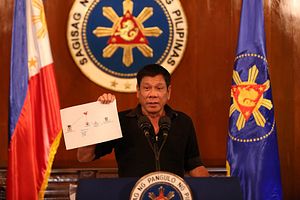Mention the name Rodrigo Duterte and what comes to mind is the bloody “war on drugs” that has claimed the lives of more than 7,000 Filipinos.
Amid the continuing spate of killings in the Philippines, it is almost impossible to discuss the social reform agenda of Duterte’s government, which came to power less than a year ago.
But for various NGOs in the grassroots, the rise of a maverick politician like Duterte is an opportunity to push for meaningful reforms in society. After all, Duterte had a good working relationship with progressive groups when he was mayor of Davao City for more than two decades.
Despite the embarrassing human rights situation in the country, which worsened when Duterte became president last June 30, the present government has been quite aggressive in implementing several new policies that are expected to make a huge social impact.
Consider the following:
- The mining audit conducted by the Department of Environment and Natural Resources led to the decision to suspend dozens of destructive mine operations across the country. The business sector is worried about this but green groups, indigenous peoples, and activists have expressed their support to the DENR. Surprisingly, Duterte didn’t reverse DENR’s ruling and has even repeatedly endorsed the objectives of the mining audit. This is a tough decision considering that big miners were among Duterte’s campaign donors.
- Early this month, Duterte signed the Paris Agreement on Climate Change. The pact, which calls for the reduction of carbon emissions, is deemed important by environmentalists since the Philippines is vulnerable to the harsh impact of climate change.
- Duterte is expected to sign an executive order banning smoking in all public places across the country. Naturally, this is being supported by health and environment advocacy groups.
- Duterte has appointed several Leftist personalities to his Cabinet, which is unprecedented in Philippine politics. The new Cabinet secretary heading the government’s land reform program, which is criticized by activists as biased in favor of landlords and real estate developers, is a peasant leader.
- Duterte has resumed peace negotiations with communist rebels in a bid to end one of Asia’s longest-running conflicts. During the recent round of talks, both parties agreed in principle to distribute lands to small farmers for free. The next meeting will discuss social and economic reforms and the conditions for establishing a bilateral ceasefire. This is a significant development since Duterte’s predecessors have all failed to move forward the peace process.
- Duterte removed from Cabinet his former election campaign spokesperson who is facing allegations of corruption. Duterte warned other officials of the bureaucracy that they will also be kicked out of office if they commit graft and corruption.
If these reform policies are not widely known outside the Philippines, Duterte has no one to blame but himself and his frequent outbursts. If asked about his platform, he will probably focus on defending the ill-conceived “war on drugs.” He will most likely argue that making Filipinos safe from criminality will spur local development. Instead of highlighting the initiatives of his progressive Cabinet members, he chose to fight for state forces involved in extrajudicial killings.
If the drug war escalates into a more sinister program targeting the poor, then Duterte’s social reform agenda will be rendered futile.
What is the use of stopping smoking to save Filipino lives if Duterte cannot stop the killings in urban poor communities? How can indigenous peoples in mining-free communities rebuild their lives when Duterte has authorized the military to “flatten the hills” and pursue “all-out war” against rebels? How can the peace talks continue if Duterte is always flip-flopping on the issue of releasing political prisoners?
Duterte is currently facing an impeachment complaint. There are also proposals for the UN and other global institutions to make Duterte accountable for the deteriorating human rights situation in the country. All these could have been avoided if Duterte had only chosen to give top priority to his social reform agenda.

































